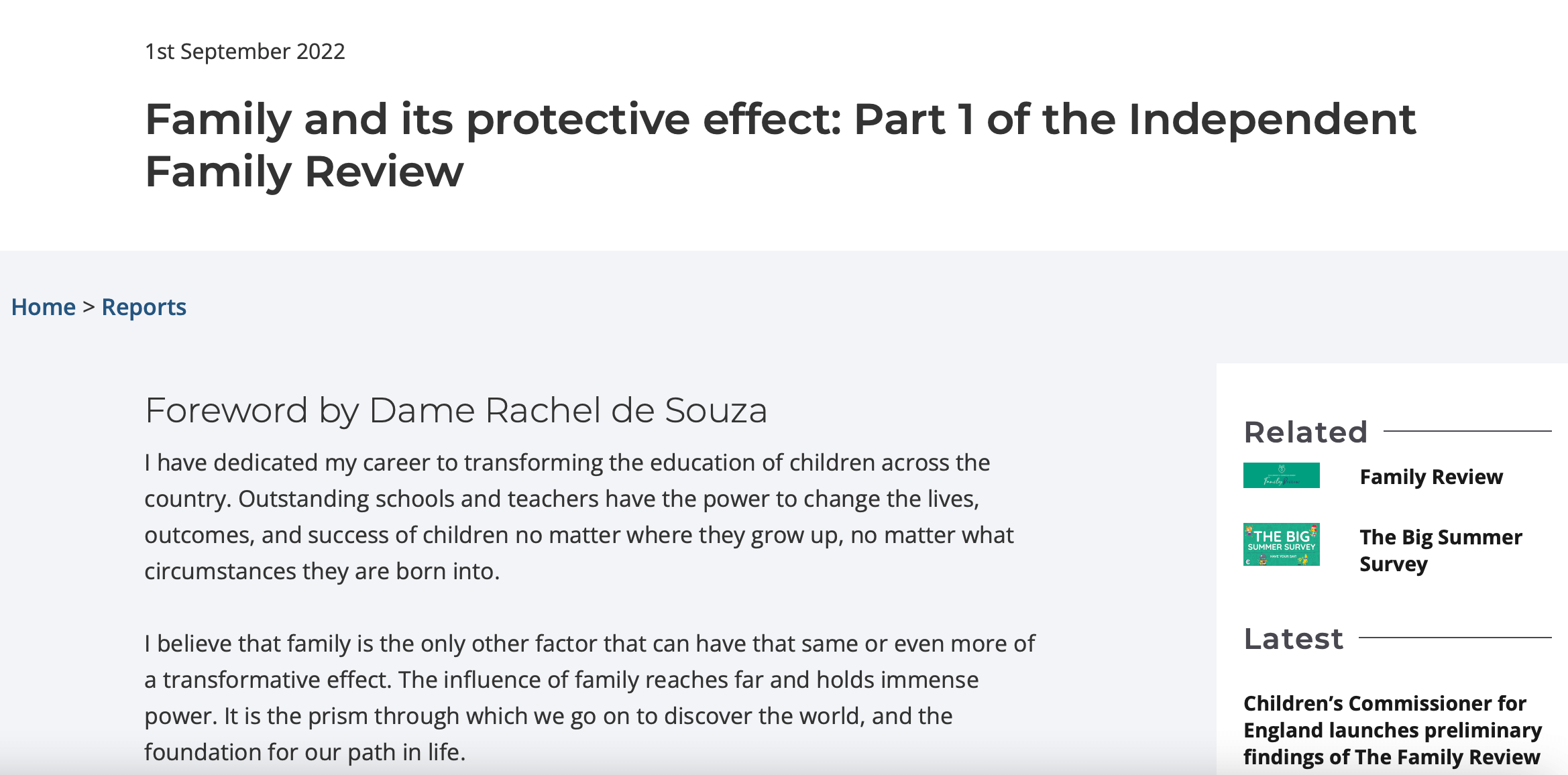
I have dedicated my career to transforming the education of children across the country. Outstanding schools and teachers have the power to change the lives, outcomes, and success of children no matter where they grow up, no matter what circumstances they are born into.
I believe that family is the only other factor that can have that same or even more of a transformative effect. The influence of family reaches far and holds immense power. It is the prism through which we go on to discover the world, and the foundation for our path in life.
The last few years have been challenging for everyone and the pandemic has reaffirmed the importance of family and relying on their support during difficult times. Now, more than ever, it is vital that we understand, celebrate, and appreciate the importance of family in everyone’s lives, especially children.
We know that if children have happy and supportive families, they are more likely to succeed later-on in life. They are more likely to have healthy relationships. They are more likely to have happy lives.
That is why, when the Government asked me to research what the modern family looks like, I didn’t think twice. For the answer, I turned to families themselves. Families all across the UK and England told me what family means to them – about who is in their family, how their family shapes their lives, and where they turn to for support if they need it. It has been a privilege to hear their stories.
I am so proud of this Review. Our research has produced unique and comprehensive insight into family life today, drawing on novel qualitative and quantitative data and analysis.
I have heard about the power that family holds. A power that provides a shield from life’s challenges – a protective effect against adversity. Families recognise it and those who work with them acknowledge it. And importantly, for the first time, this Review proves and quantifies exactly what the protective effect of family is.
The research shows it’s more about the quality of family relationships than the composition or relative position of the family in society. It’s about strong and lasting relationships, relying on each other, and spending time together. And believing you could rely on family in time of crisis is associated with significantly higher overall well-being. Family can insulate us from the harshness of difficult times and so looking into the short term, and long term, we must protect it and support it in whatever ways we can.
For a lot of families, this protection and support will come from their own networks – parents, grandparents, friends. Families around the country told me how much they loved and valued their family, how important it was to them, and how much they cherished it.
Most families will choose to access professional services to support them at various stages of family life, like health care workers or post-natal care. We need to make sure that these services can be easily accessed by everyone and provide good quality care.
For a small percentage of families who are really struggling, protection and support may need to come from elsewhere. When strong and positive relationships – with professionals and peers – were in place, help was often welcome and valued with many services doing an exception job of supporting families. But I also heard of the challenges faced by those accessing support, from unnecessary barriers that brought stigma and complication, to high thresholds for help. This needs to change.
For children in care there must be no gaps in support. We must take our role as a corporate parent for children in care seriously. We must ask ourselves, would this be good enough for my child? And if the answer is no, then we must do better. Children in care deserve the same things as all other children – love, support, and long-lasting relationships. We need the services that support children in care to make this happen.
This ground-breaking research has provided us with a deep understanding what families look like. Their experience of family influences and impacts every part of their lives, inside and outside of the family home. For children it shapes their future. This is why, the Government needs to prioritise how they can put families at the heart of all of policy decisions. This is the moment to make a difference in every family’s life.